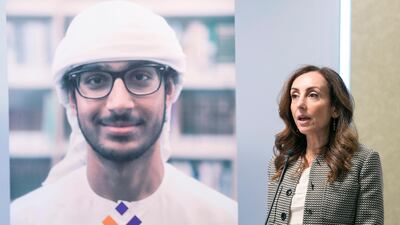Four years ago, we set out to establish the Arab world’s largest privately funded education foundation. The mandate that its founder Abdulla Al Ghurair laid out was focused and ambitious: to help 15,000 under-served, high-achieving Arab youth access high-quality education. Despite the seemingly daunting challenge, the foundation is on course to not only achieve but far exceed its original goal – in large part due to its strategy of learning, innovating and working in partnership.
Philanthropy, like every other sector, can only be effective if it is informed by facts and experience. From the early days, the foundation set out to learn everything it could about the youth we intended to help. The data we gathered from more than 60,000 youth and our consultations with hundreds of organisations in the region and abroad helped shape the foundation’s programmes. It also put us in a constant state of learning, often adjusting our approach and sometimes completely changing course to meet the vastly different needs of youth from across the region.
Beyond facts and figures, our greatest learning came from the stories of more than 1,000 young scholars – first-generation university students who did not have anyone to lean on as they navigated the complexities of the higher education system; refugees whose lives and education were disrupted by conflict; and many who battled the stress of achieving their academic dreams while they helped care for their families.
It was only with open communication and close partnership with our university partners that we learned how to support our scholars as they strove to overcome challenges. The foundation’s scholarship model is far from perfect but it has gone a long way to address the barriers underprivileged youth face in higher education and has the potential to become a valuable resource for all those who want to offer life-changing scholarships.
Educational system challenges in the region and the sheer number of young people who needed educational support dictated the necessity of the foundation to seek new solutions. Yet many of the readily available interventions were traditional, time-consuming and financially unfeasible to upscale.
Investing in tech-enabled solutions became an integral part of our strategy but it was never the cornerstone. We were driven by finding solutions to the main challenge of the foundation – providing access to high-quality education to millions across the region. We were the first foundation in the world to support access to scholarships in MicroMasters online graduate courses, in collaboration with the Massachusetts Institute of Technology. But access alone was not enough. We had to work hard at making more youth aware of the online learning opportunity, be able to access it and to succeed. We also had to counter resistance from educational institutions and government entities that were not ready to adapt to the new approach.
One of the most promising online learning initiatives is a new collaboration between the foundation and the American University of Beirut, which takes the institution online, building on what we and the world have learned from this space while fostering homegrown regional innovation to meet the needs of students. This initiative has the potential to change teaching and learning in universities in the region and make higher education much more accessible.
Despite having considerable resources, it became clear very early on that the foundation would not be able to help all deserving youth in the region, nor deliver on its mandate, on its own. Support from civil society organisations, educational institutions, government and foundations, both in the region and around the world, was a key success factor.
The foundation learned from partnerships that did not work just as much as it did from partnerships that thrived. One lesson stood out. The best partnerships were built on a shared vision for making higher education inclusive, coupled with a commitment from all parties to be responsive to the needs of students, to invest the human resources needed on the ground and to be willing to change course along the way.
Our partnership with Arizona State University to design and deliver a bespoke university and career preparation platform was among one of the foundation’s most effective initiatives. The design of the programme took much longer than anticipated but with the support of the UAE government, the platform has benefited more than 10,000 Emiratis in nine months and is set to continue to grow in the UAE and region-wide.
The foundation has learned a great deal in the past four years but the learning will never stop. It is my hope, as I prepare to move on, that every organisation will see the value of contributing to building the ecosystem of philanthropy across the region through knowledge-sharing, joint initiatives and encouraging more institutional giving. I also hope that the region’s rich tradition of generosity is matched by a greater willingness to try out new and bolder approaches to solving some of the most persistent and large-scale challenges. The Arab region needs it – and its children and youth deserve it.
Maysa Jalbout is the founding CEO of the Abdulla Al Ghurair Foundation for Education

